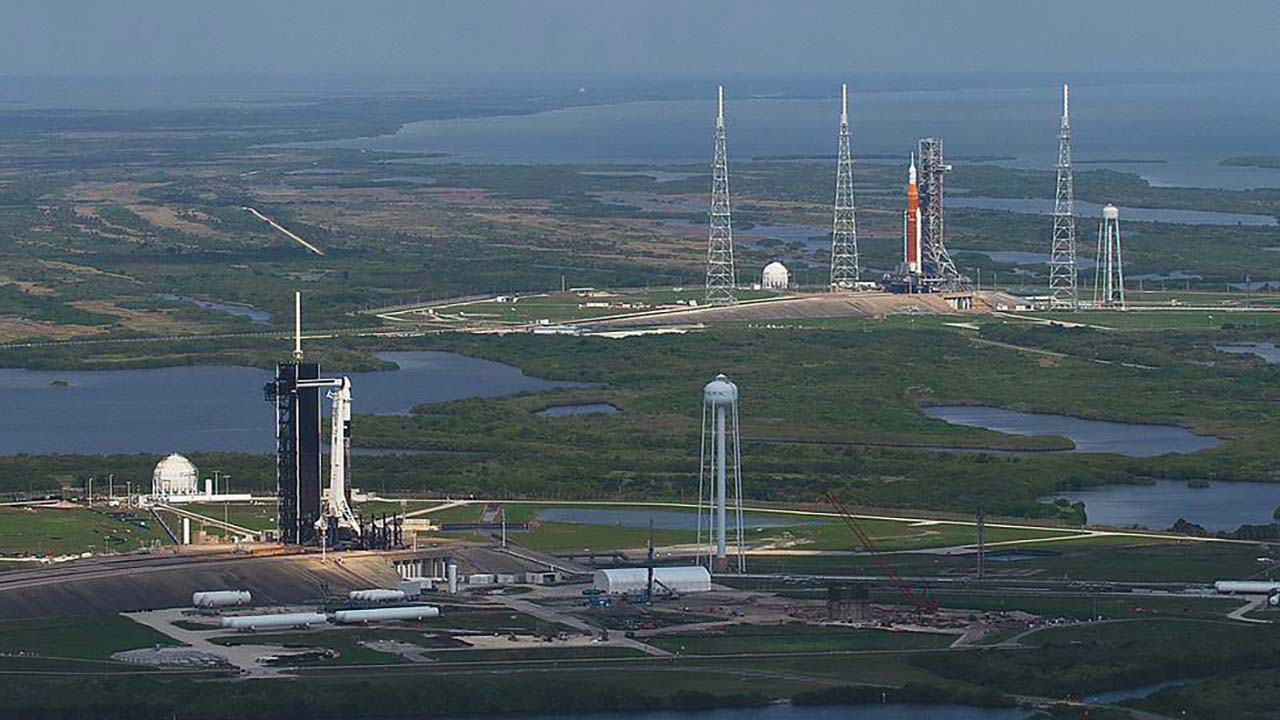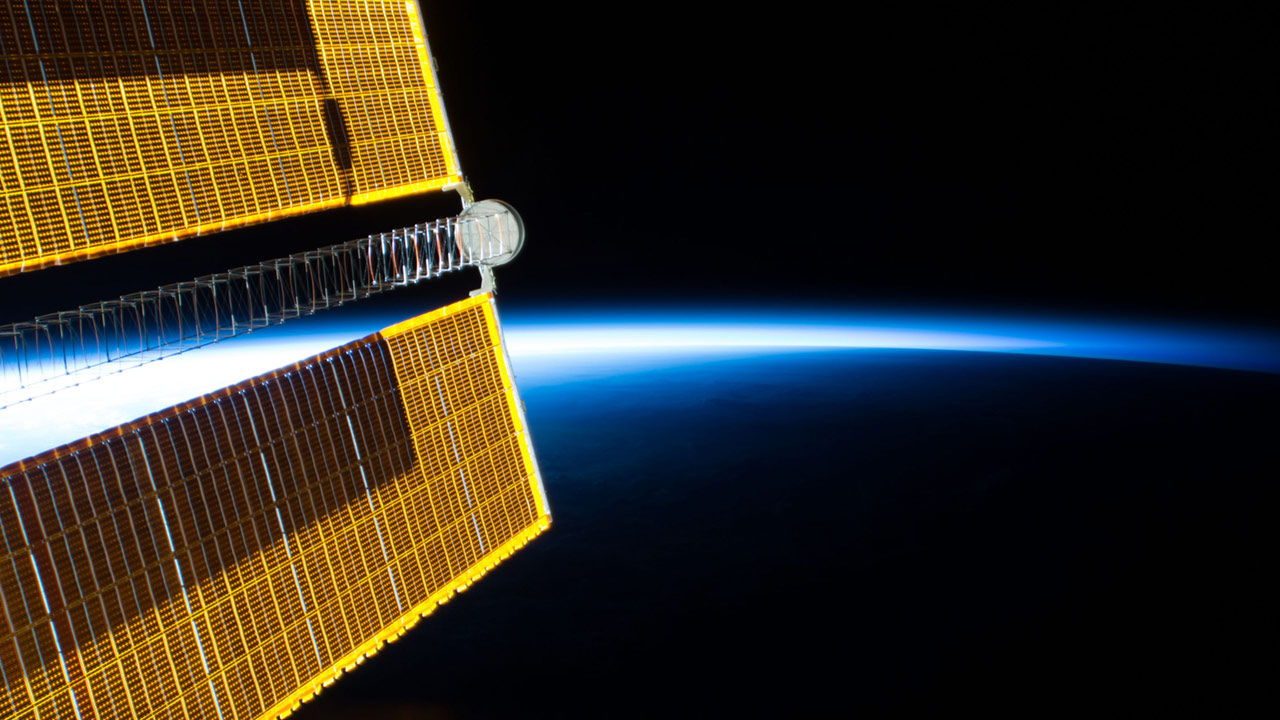Welcome to the NSF/CASIS Feasibility Review Form. The International Space Station (ISS) U.S. National Laboratory is managed by the Center for the Advancement of Science in Space (CASIS) under a Cooperative Agreement with NASA.
The Divisions of Chemical, Bioengineering and Environmental Transport (CBET) and Civil, Mechanical, and Manufacturing Infrastructure (CMMI) in the Engineering Directorate of the National Science Foundation (NSF) are partnering with CASIS to solicit projects in the general fields of tissue engineering and mechanobiology for research that can utilize the ISS National Lab to benefit life on Earth. Only U.S. entities including academic investigators, nonprofit independent research laboratories, and commercial teams are eligible to apply.
The purpose of this solicitation is to attract proposals that make use of the ISS National Lab for flight research projects in the field of biomedical engineering. Responsive proposals will describe how the proposed research will utilize the ISS National Lab to develop novel ideas into discovery-level and transformative projects that integrate engineering and life sciences.
The two-step process below provides potential offerors with an easy, efficient submission process.
- 1
ISS National Lab Feasibility Review Form Submissions
The deadline for Feasibility Review Form submissions has passed. The ISS National Lab will respond with the status of the review within four weeks after submission of the form.
- 2
NSF Full Proposal Submissions
The submission window for full proposals has closed.
Offerors that submitted Feasibility Review Forms that pass initial review will be invited to submit a full proposal for evaluation by NSF. Documentation from the ISS National Lab confirming approval to submit a proposal must be provided when full proposals are submitted to FastLane or Grants.gov.
For more information on the full proposal, please see NSF 21-520
Informational Webinar
Flight Hardware Information
Teledyne Brown
Teledyne Brown Engineering Informational Presentation
Paul Galloway, Program Manager/Lead Systems Engineer, Systems Safety Engineer
[email protected]
Space Tango
Space Tango Informational Presentation
Twyman Clements, CEO & President
[email protected]
859-229-2719
Techshot, Inc.
Techshot, Inc. Informational Presentation
Rich Boling, VP, Corporate Advancement
[email protected]
812-728-8136
BioServe Space Technologies
Bioserve Space Technologies Informational Presentation
Stefanie Countryman, MBA, Associate Director
[email protected]
303-735-5308
ScorpioV HNu Photonics
ScorpioV HNu-Photonics Informational Presentation
Devin Ridgley, Ph.D., Project Scientist
[email protected]
808-740-6125
Alpha Space Test and Research Alliance, LLC
Alpha Space Informational Presentation
Kevin Heath, Director of Business Development
[email protected]
916-402-2274
STaARS, Inc.
STaARS, Inc. Informational Presentation
Craig Walton, Chief Executive Officer
[email protected]
832-775-8694
Nanoracks LLC
Nanoracks LLC Informational Presentation
Carl Carruthers, Jr., Ph.D., Chief Scientist
[email protected]
979-574-5351
Aerospace Applications North America
Vergel Romero, ICE Cubes – US Manager
[email protected]
832-470-1833
For a list of Implementation Partners with available hardware to support projects on the ISS, please see the ISS Implementation Partner Directory. An expanded listing of flight hardware and research facilities for support of life science investigations on the ISS is provided by NASA (Space Station Research Facilities).
Offerors are strongly encouraged to use existing flight hardware and facilities rather than proposing to develop new platforms. The ISS National Lab Operations team ([email protected]) can answer questions regarding facility availability and capabilities.
Offerors are also encouraged to work with an Implementation Partner—organizations that work with the ISS National Lab to provider services in payload development and integration. Implementation Partners can be a key ally to support and facilitate translation of ground-based research to flight experiments, and many ISS National Lab facilities are owned and/or operated by Implementation Partners. For more information about Implementation Partners, go here.
Questions and Answers from Webinar
Q: Will the Implementation Partner have their own budget or they should be accounted within the $400,000?
A: No, the Implementation Partners’ budgets should not be included in the NSF budget. The ISS National Lab will work with the Implementation Partners separately to award funding for their portion of the work.
Q: How much preliminary data should be presented? I have never worked with space flight conditions but my lab works in the general area of tissue engineering.
A: As is always true with NSF proposals, you need to convince the reviewers that you can feasibly conduct the experiments. But you will not be expected to have preliminary data specific to the various Implementation Partners’ systems. So, preliminary data showing that your experiments work on the ground and evidence of solid conversations with the Implementation Partners that will work with you would be good areas to address.
Q: It seems possible that specimens are returned to Earth. Is the time aboard the ISS a variable that can be scheduled/controlled?
A: It is possible to return specimens to Earth. It would be appropriate to talk with the Implementation Partners to discuss experimental possibilities. We recommend you complete this form with as much information as possible before you initially talk to Implementation Partners. If you would like the ISS National Lab to help you distribute the information to the Implementation Partner community, please contact us at [email protected].
Q: Is a collaborator who has better knowledge of effects at ISS necessary? Or it is fundamental research, rather than interface at the application and fundamental study?
A: There is no need to have an experienced ISS researcher as part of the team. This is actually what the Implementation Partners are for—they will help you to determine how to transition your research objectives into projects that are doable on the ISS.
Q: It is unclear if proposal needs to include methods of how to send the device to space, and does this aspect needs to be budgeted?
A: You will need to describe how you will conduct your experiment on the ISS in enough detail for us to determine if it is feasible and scientifically relevant. You can start by completing this form in as much detail as possible and returning it to [email protected]. The NSF budget should include the costs necessary to do any preliminary work on the ground, including preparing the project for the ISS in collaboration with the Implementation Partners. However, the costs for the ISS equipment, the launch, the actual experimentation on the ISS, and the Implementation Partner services are part of the ISS National Lab funding and should not be included in the NSF budget.
Q: Is there any restrictions how to distribute the budget of $400,000?
A: No, it is up to the principal investigators to determine how to best divide up the budget to support their work.
Additional Information
Awardees under this solicitation will need to execute a User Agreement with the ISS National Lab in order to conduct research on the ISS. A template agreement has been developed to streamline the process.
We thank you for your interest in conducting research on the ISS National Lab! For general questions regarding this solicitation, contact us at [email protected].
** Please verify that none of the information submitted is subject to the export control laws of the United States, such as the EAR or the ITAR; if any information is subject to such laws, please mark all pages containing such information and identify the appropriate export control jurisdiction and classification. **
Guidance on Foreign Nationals
Principal and Co-Principal Investigators:
The Principal Investigator (PI) and any Co-Principal Investigators (Co-PIs) for the proposal are required to be “United States persons” as defined by 22 U.S. Code §6010: “‘United States person’ means any United States citizen or alien admitted for permanent residence in the United States, and any corporation, partnership, or other organization organized under the laws of the United States.”
Other Team Members:
Additional team members on the proposal, those beyond the PI and Co-PIs, are determined strictly at the discretion of the proposing entity. The entity will be fully responsible for compliance with all U.S. export control laws and regulations, including (but not limited to) the International Traffic in Arms Regulations (ITAR), 22 C.F.R. Parts 120 through 130, and the Export Administration Regulations (EAR), 15 C.F.R. Parts 730 through 799. All licensing and other approvals, including identification, classification, and marking of data subject to these regulations, are the responsibility of the proposing entity.
NASA has compiled a list of “Designated Countries” that have additional restrictions imposed. If a member of the team working on the proposal is a citizen of a country on the “Designated Countries List,” the proposing organization is responsible for prior consultation and approval from NASA Export Control and the NASA Office of International and Interagency Relations. CASIS does not get involved in an entity’s export control program, particularly regarding ITAR and EAR. We rely on universities and companies to take all appropriate measures regarding export, including following NASA regulations.
- NASA’s Export Control Program: https://oiir.hq.nasa.gov/nasaecp/
- NASA Designated Countries: https://www.nasa.gov/oiir/export-control
Access to NASA centers and/or NASA IT data systems is limited to United States persons, as defined above.





